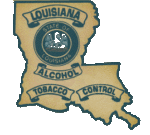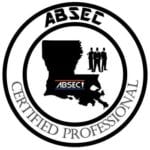Introduction to Obtaining a Liquor License in Louisiana
Obtaining a liquor license in Louisiana is a critical step for any business looking to sell alcoholic beverages. The process involves navigating a set of specific requirements set by both state and local authorities. Louisiana’s vibrant culture, renowned for its festivals, music, and culinary heritage, often involves a rich tradition of alcoholic beverages, making the ability to sell alcohol legally a valuable asset for businesses in the state. This guide outlines the essential steps and considerations for securing a liquor license in Louisiana.
Understanding Louisiana’s Liquor Licensing Requirements
Louisiana’s unique legal framework for alcohol sales is governed at both the state and local levels. This means that, in addition to meeting state requirements, applicants must also comply with regulations specific to the parish or municipality where their business is located. It’s important to note that the Louisiana Office of Alcohol and Tobacco Control (ATC) is the primary state agency responsible for issuing liquor licenses and enforcing regulations.
Types of Liquor Licenses
In Louisiana, there are several types of liquor licenses available, tailored to the nature of the business. These range from licenses for restaurants, bars, and nightclubs to special event permits and retail liquor store licenses. Choosing the right type of license is crucial, as it dictates the scope of your business’s alcohol sales.
Eligibility Criteria
To apply for a liquor license in Louisiana, businesses must meet specific eligibility criteria. These generally include requirements related to the business’s location, the character of the owners and operators, and the establishment’s compliance with local zoning laws. A clean criminal record and a demonstration of responsible alcohol service practices are also essential.
Step-by-Step Guide to the Application Process
The process of obtaining a liquor license in Louisiana involves several key steps. While the specifics can vary by locality, the general process is as follows:
1. Preparing Your Application
Begin by gathering all necessary documentation, including business formation papers, lease or property ownership documents, and personal identification for owners and key employees. This stage often involves ensuring that your establishment meets local zoning requirements for selling alcohol.
2. Completing Required Training
Louisiana law mandates that certain applicants and their employees complete Responsible Vendor (RV) training. This program covers topics related to responsible alcohol service, including identifying fake IDs and recognizing signs of intoxication.
3. Submitting Your Application
Applications for a liquor license can typically be submitted online or in person at the appropriate local or state office. Be prepared to pay any required application fees at this time. Fees vary depending on the type of license and the specific locality.
4. Passing Inspections
As part of the application process, your business may be subject to inspections by local health, fire, and building departments to ensure it meets all safety and health standards.
5. Awaiting Approval
Once all forms have been submitted, fees paid, and inspections passed, your application will be reviewed by the relevant authorities. This process can take several weeks or months, depending on the jurisdiction and the complexity of your application. During this time, stay in communication with the licensing authority to address any additional requirements or questions that may arise.
Finalizing Your License and Staying Compliant
After receiving approval, you must pay any outstanding license fees before your liquor license is officially issued. With your license in hand, it’s essential to maintain compliance with all state and local laws regarding alcohol sales and service. This includes renewing your license and RV training certification as required, adhering to hours of sale regulations, and ensuring that all employees are adequately trained in responsible alcohol service.
Conclusion
Securing a liquor license in Louisiana is a comprehensive process that requires attention to detail, adherence to local and state regulations, and a commitment to responsible alcohol service. By following this guide and working closely with local authorities and the Louisiana ATC, businesses can navigate the application process more effectively, paving the way for successful and lawful alcohol sales in the Pelican State.










